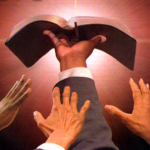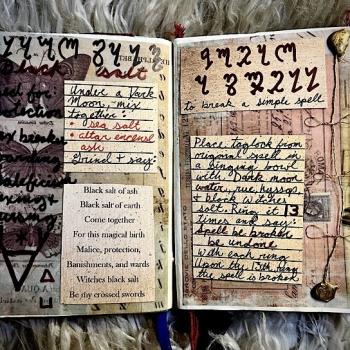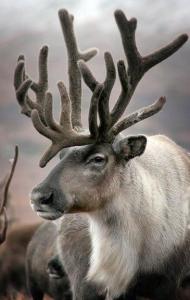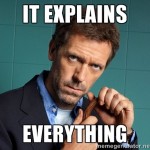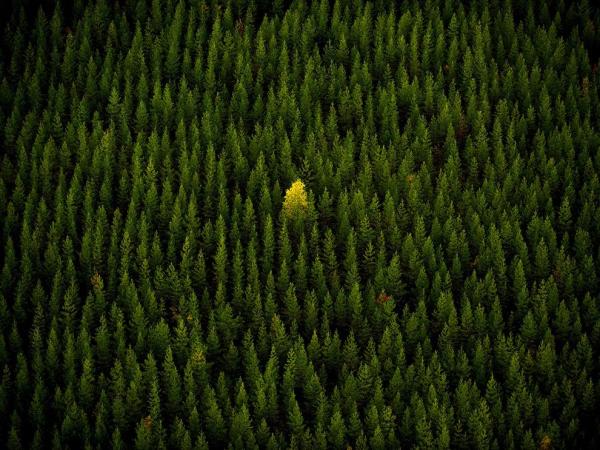
So my last post, “The Dictionary Is Not a Holy Book,” apparently got some people upset. While most of the times the dictionary gets whipped out on me, it’s over the words “god” or “polytheist” or “pagan,” actually this last time it was over another word completely unrelated to questions of theology or Pagan/Polytheist identity. (I’d rather not say which word it was because I don’t what to give this particular troll the attention they so desperately crave.)
Nevertheless, my “Dictionary” post spurred yet another round of responses about whether we should have hard/precise or soft/fuzzy definitions of deity. There are different levels on which we can talk about religious/spiritual matters — cosmic, terrestrial, social/interpersonal, transpersonal, personal, psychological, biological, physical, quantum, and so on. And some words have different meanings depending on the level on which we as speaking. Consider the word “life,” which means one thing to a biologist and another to a psychologist and another to a sociologist. And I think the same is true of religious words like “gods” and “deities” and “divinity.” And just as it would be ridiculous for a biologist to tell a psychologist or a sociologist that that they can’t use the word “life,” so too, it is ridiculous for a hard polytheist to tell a pantheist or a religious naturalist that they can’t use the word “god,” or vice versa.
There’s someone else who has written on this issue far more eloquently and (I think) persuasively than I can, and she’s a devotional polytheist to boot: Morpheus Ravenna. So I want to share what she had to say here and close with a question to all my hard-polytheist haters out there.
I think there’s something missing from a lot of the dialogue about polytheism, and that thing profoundly influences my perspective on the Gods. That thing is ecology.A lot of my college study was in ecology and life science. The ecological paradigm informs pretty much all of my thinking about spiritual realities and theology. And coming from that perspective, the whole question of hard versus soft polytheism keeps looking to me like a false dichotomy. Because ecological thinking is all about relationships, and which relationships you see or don’t see depends on what scale you’re looking at. And if the Gods are in any way real, then They are necessarily part of nature (just as we are), and we can use the same lens to look at them.
So the natural world is this matrix of beings and forces interacting at different scales. You can look at one scale and see individual creatures which appear to be separate and discrete, interacting with one another. Look at another scale and you see populations, separable from one another and interacting with other populations. Look at another scale and you see huge, global forces that subsume the individual into great ecologies of energy and life force. Which scale is the correct lens? Which perception is true?
At one scale, we might see a tree. It’s easily identifiable as an individual of its species – we can measure its DBH, canopy, height, age. We can take the same measurements of the tree next to it and get a different set of data. They’re clearly individual beings with separate identities. If we looked at their DNA that would be identifiable too. And no question, it’s a different species from the mushrooms growing over its roots. The soil isn’t even an organism, it’s just a matrix to hold the tree’s roots.
So now we go underground, and it turns out that the forest is made up of all these trees, but their roots form a network that isn’t just intertwined, but in fact the roots merge underground. And it also turns out that the mushrooms don’t just feed the trees by feeding the soil, but in fact make up a mycelial web that is integrated into the soil AND the root network of the trees, and they are all bonded into each other at the cellular level. And suddenly at this scale, what’s real and identifiable as a functioning organism, a being, is the forest. At this scale, the tree is just an organ of the forest. Which scale is correct?
The forest interacts with other ecologies. It creeps forward, shrinking the grassland. Or desert pushes it back. They dance, wrestle, collide. At the continental scale, we just see vast interactions measured in energy, oxygen, carbon, water vapor. The biosphere breathes its oxygen from the great forested lungs. They pour down carbon from the air to the surface. Day heats the oceans and moisture shifts on oceanic currents. The being breathes in, out, in, out. We’ve seen it from space. It’s clearly a distinct, identifiable individual with obvious boundaries, glowing blue and green against the black. Surely this being is the real one. Surely its identity is the clearest we could look for.
At another scale, we can watch the sweep of planets clinging round the gravitational core of a sun, like organelles of a cell membrane-held to its nucleus, swimming in the solar wind that carves their magnetospheres. Is this an organism, an individual? At another scale, we can watch interactions between galaxies, each with their own shape, composition, gravitational force, rotation speed and trajectory. This one has a black hole in its core, that one has a concentration of dark matter. They’re unique, beautiful, evocative, nameable. Is this an individual being? Is this the correct scale?
This is our universe as we are able to know it. Where in these scales do the Gods live and operate? I cannot see why we would assume that They exist at only one of these scales. The universe is full of structures that live, act, and function on every level, from the atomic to the multiversal. Why, my friends, would we think the same is not true of the Gods?
So when someone asks if the Gods are cosmic and universal or if They are local and individual, I want to say YES OF COURSE. Or, “Which ones do you mean?” I want to say, “I don’t know, and you don’t either! Who can have lived long enough to have met Them all?” I think that if we have any awareness of the multi-scaled infinitude of the universe we live in, if nothing else we have to maintain some humility about the scope of what we know, and ever can know. And I think it strongly suggests that the Gods include ALL OF THE ABOVE. Local spirits-of-place Gods, like the tiny endemic population of this-kind-of-poppy-with-the-spot-on-its-petals which has only ever been found on one mountain in one county in one land. Gods of landscapes: this river, this mountain, this desert. Gods of natural forces and structures. Thunder Gods, snow-and-winter Gods, wildfire Gods, moon Gods. Cultural Gods: the Gods of the Celts, the Saxons, the Nubians, the Saami, the Maya. Gods of cycles and systems: of spring, the tides, the night. Gods of human patterns and motive forces: civilizing Gods, Gods of love and war, of justice and sovereignty and truth. Gods of cosmic forces: decay, death, rebirth, time, eternity, space. Gods who are mysterious intersections of multiple forms of power. Gods who are simply Themselves and show up in whatever milieux and culture They feel like tomorrow. Gods with no face. Gods who are nothing but the endless omnipotent life force endlessly taking shape in all things.
I ask you, who are we, any of us, to say that we know which of these many kinds of Gods are real and which of them can’t possibly exist?
This is honestly one of the best pieces of theology I have ever read.
So here’s my question … Can we just call an end to all the I’m-right-and-you’re-wrong and just concede that we’re talking things on different scales or levels?
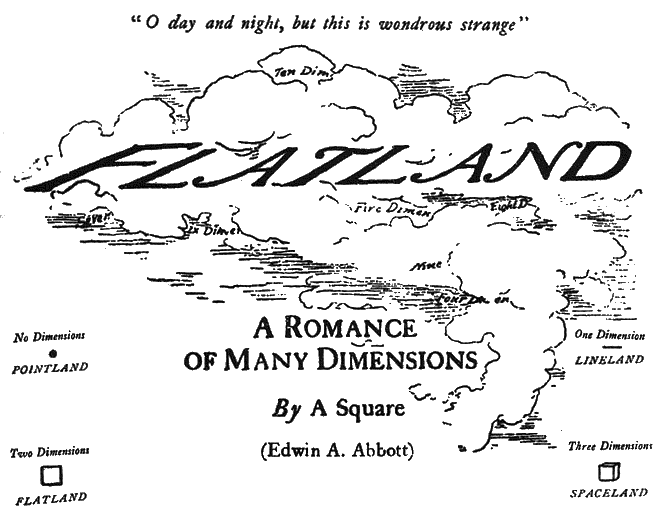 Let’s acknowledge that all of us — me and John Beckett, Jason Mankey and Galina Krasskova, Alison Leigh Lilly and Anomalous Thracian, Sable Aradia and Star Foster, Sunweaver and Aine Llewellyn, and Ian Corrigan and Morpheus Ravenna, Yvonne Aburrow and Tess Dawson, Niki Whiting and Laine DeLaney, Julian Betkowski and P. Sufenas Virius Lupus, Alyxander Folmer and Rhyd Wildermuth, Cat Chapin-Bishop and Sannion, and anyone else who has ever written about poly/theism here at Patheos Pagan or elsewhere (sorry if I left you out), even the trolls that I don’t want to name (for reasons completely unrelated to their theology) — are talking about gods, but we’re talking about them on different levels.
Let’s acknowledge that all of us — me and John Beckett, Jason Mankey and Galina Krasskova, Alison Leigh Lilly and Anomalous Thracian, Sable Aradia and Star Foster, Sunweaver and Aine Llewellyn, and Ian Corrigan and Morpheus Ravenna, Yvonne Aburrow and Tess Dawson, Niki Whiting and Laine DeLaney, Julian Betkowski and P. Sufenas Virius Lupus, Alyxander Folmer and Rhyd Wildermuth, Cat Chapin-Bishop and Sannion, and anyone else who has ever written about poly/theism here at Patheos Pagan or elsewhere (sorry if I left you out), even the trolls that I don’t want to name (for reasons completely unrelated to their theology) — are talking about gods, but we’re talking about them on different levels.
Can we just acknowledge that all of our gods are “real” on some level, and not “real” on other levels. And that all of us are poly/theists on some level, and none of us are poly/theists on other levels. And that some of the words we use have different meanings on different levels And that the definitions we use on one level sometimes don’t make any sense on another level, but that doesn’t make anyone’s “wrong.” And that none of the levels is better or more right than any of the others.
If we want precision in language, then let’s be precise about what level we’re talking on when we talk about theology. Let’s abandon this one-dimensional flatland metaphysics, and embrace a “tropical rainforest ontology.” Let’s stop talking like there is only one level to reality or that there is any set of definitions can possibly encompass all of those levels at once. Instead of saying our gods are the “real” kind, let’s be precise about what level we’re talking on when we talk about gods. And instead of saying there’s only one way to be polytheist, let’s be precise about what kind of polytheists we are. But let’s recognize that language is flexible enough to accommodate all of our uses, without the moralism creeping into our discussions.
We are not each other’s enemies. We are not competing for converts. Or for ownership of words. Or for the attention of the gods. There’s room enough in the ecology of the gods for all of our beliefs and ways of honoring them.
And then, I think, the really interesting discussions can finally begin.

